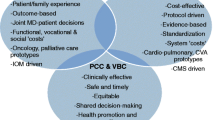Abstract
Objective
Advances in information technology enable the practicing psychiatrist’s quest to keep up-to-date with new discoveries in psychiatry, as well as to meet recertification requirements. However, physicians’ computer skills do not always keep up with technology nor do they take advantage of online search and continuing education services. This article describes the rationale for using electronic databases and training, as well as basic computer skills computer equipment and important online resources for psychiatrists to meet their continuing education and recertification needs quickly, easily, and conveniently.
Method
A literature review was performed using PUBMED and Google to find articles related to recertification, physician’s technology adoption and computer skills evidence-based medicine, and basic approaches to lifelong learning using computers and the Internet, and resources for lifelong learning.
Results
Psychiatrists are required to master a discrete set of information for board certification, and to maintain that knowledge for recertification. Surveys have shown that although most physicians use computers, the majority use them for personal or business purposes, and not for accessing Continuing Medical Education (CME) programs (1). The Council on Graduate Medical Education requires the acquisition of medical informatics skills for the Undergraduate Medical Education for the 21st Century (UME-21) curriculum project (2). There is a growing body of literature outlining basic computer skills and competencies for physicians to access online textbooks, databases, journals and CME programs.
Conclusions
Psychiatrists can benefit from learning how to use computers and the Internet to keep current with the advances in the field. Skills now being taught in medical school and residency are equally important for practicing psychiatrists to learn and master.
Similar content being viewed by others
References
Lacher D, Nelson E, Bylsma W, et al: Computer use and needs of internists: a survey of members of the American College of Physicians-American Society of Internal Medicine. Proc AMIA Symp 2000;453-456. www.amia.org/pubs/symposia/D200043.PDF. Accessed November 29, 2005
Council on Graduate Medical Education Resource Paper: Preparing learners for practice in a managed care environment. Washington, DC, Department of Health and Human Services, HRSA, 1997 http://www.cogme.gov/resource.htm. Accessed October 19, 2006
ABPN: Recertification, www.abpn.com/recertification. Accessed November 29, 2005
Jackson MJ: Maintenance of Certification. Presentation given at the Alliance for Continuing Medical Education (ACME) 30th Annual Conference, Jan 27, 2005, San Francisco, Calif. www.acme-assn.org/files/2005ACOPSP.ppt. Accessed December 4, 2005
ABPN: Information for Applicants for Recertification in Psychiatry and the Subspecialties, www.abpn.com/Downloads/2006_psych_recert_ifa.pdf. Accessed December 4, 2005
Stone J, Sharpe M: Internet resources for psychiatry and neuropsychiatry. J Neurol Neurosurg Psychiatry 2003; 74: 10–12jnnp.bmjjournals.com/cgi/content/full/74/1/10. Accessed Dec 4, 2005
Lazoff M: Online Clinical bl]References. Med Comput Today 2001; May www.medicalcomputingtoday.com/0nvclinref.html. Accessed December 4, 2005
American Academy of Family Physicians: Recommended Curriculum Guidelines-Medical Informatics and Computer Applications, www.aafp.org/x16546.xml. Accessed Nov 25, 2005
Rogers C: Physicians lack the skills for computer CME. American Academy of Orthopaedic Surgeons Bulletin 2001; 29 http://www2.aaos.org/aaos/archives/bulletin/apr01/cme1.htm. Accessed December 4, 2005
Chew F, Grant W, Tote R: Doctors on-line: using diffusion of innovations theory to understand internet use. Fam Med 2004; 36: 645–650
Alper BS, Vinson DC: Experiential curriculum improves medical students’ ability to answer clinical questions using the internet. Fam Med 2005; 37: 565–569
Dr. Alper’s Useful Links, www.myhq.com/public/a/l/alper/. Accessed December 11, 2005
Tutor Guide, www.fmdrl.org/index.cfm?event=c.Access Resource&rid=81. Accessed December 11, 2005
Teaching Points, www.fmdrl.org/index.cfm?event=c.AccessResource&rid=139, Accessed December 11, 2005
Slawson DC, Shaughnessy AF: Teaching evidence-based medicine: should we be teaching information management instead? Acad Med 2005; 80: 685–689
Garde S, Hovenga E: Australian health informatics educational framework. Unpublished manuscript.
Benner P: From Novice to Expert: Excellence and Power in Clinical Nursing Practice. Menlo Park, Calif, Addison-Wesley, 1984
Taxonomy of Educational Objectives: The classification of educational goals: Handbook I: Cognitive domain. Edited by Bloom BS. New York, Longmans, Green, 1956
Garde S, Harrison D, Hovenga E: Skill needs for nurses in their role as health informatics professionals: a survey in the context of global health informatics education. Int J Med Inform 2005; 74: 899–907
Author information
Authors and Affiliations
Corresponding author
Rights and permissions
About this article
Cite this article
Lim, R.F., Hsiung, B.C. & Hales, D.J. Lifelong Learning: Skills and Online Resources. Acad Psychiatry 30, 540–547 (2006). https://doi.org/10.1176/appi.ap.30.6.540
Received:
Revised:
Accepted:
Published:
Issue Date:
DOI: https://doi.org/10.1176/appi.ap.30.6.540




